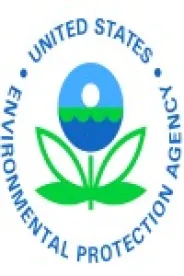This month, the U.S. Environmental Protection Agency (EPA) published a criminal enforcement alert (EPA CAFO alert) warning that Clean Water Act (CWA) violations by combined animal feeding operations (known as CAFOs) will be prioritized for aggressive enforcement and criminal prosecution, including fines and incarceration. The alert, which is available here, outlines EPA’s national enforcement initiative to reduce water pollution from CAFOs – an initiative that has resulted in numerous criminal enforcement actions involving knowing or negligent discharges of animal wastes.
BACKGROUND
EPA promulgated revised regulations for CAFOs in 2003. The 2003 rule expanded the number of operations covered by the CAFO regulations, included requirements to address the land application of manure from CAFOs, and required all CAFOs to obtain National Pollution Discharge Elimination System (NPDES) permits under the CWA. Over the last decade, the 2003 rule has been subject to several legal challenges, leading to several revisions, and there has been uncertainty regarding the rule’s requirements. See, e.g., Waterkeeper Alliance et al. v. EPA, 399 F.3d 486 (2d Cir. 2005); National Pork Producers et al. v. EPA, 635 F.3d 738 (5th Cir. 2011); Who Rules the Roost? CWA After Maryland Ruling. Against this backdrop, EPA historically appeared hesitant to initiate criminal actions unless there was strong evidence that a CAFO knowingly or negligently discharged animal waste into waters of the United States without a permit.
The release of the EPA CAFO alert suggests an end to reluctance on the part of EPA to aggressively enforce CAFOs. EPA appears to be shifting to a greater reliance on criminal enforcement to achieve the goals of deterrence and punishment.
Examples of recent cases include:
- Freedman Farms, Inc.: $1.5M Combined Fine/Penalties, 5 Years Probation, 6 Months Imprisonment for the Company President
- William Holdner: $300,000 Fine, 5 Days Imprisonment, 3 Years Probation
- Volbeda Dairy: $30,000 Fine, 3 Years Probation
- Anders Knudsen: $10,315 Combined Fines/Penalties
- Dahlgren Cattle Co., Inc.: $12,000 Fine, 3 Years Probation
- Stardust and Assen Dairies, et al: $50,000+ Combined Fines/Penalties
- Ohio Fresh Eggs, LLC: $300,000 Combined Fines/Penalties
- Van Ham Dairy and MVH Custom Works: $25,000 Combined Fines/Penalties
It is wise to pay close attention to changes in the government's enforcement “playbook.” The recent cases, EPA’s criminal enforcement alert, and the fact that CAFO enforcement remains a national priority in FY 2014-2016, signals that more criminal enforcement is to come in this area.
EPA’s attempts to regulate CAFOs have been controversial and subject to intense industry and political criticism. Indeed, certain aspects of EPA’s initial approach to CAFOs were thrown out by federal appellate courts, such as requiring all CAFOs to obtain a permit rather than only those that discharge or propose to discharge. Another complicating layer is state regulation of CAFOs. Given the history and the uncertain regulatory status of certain CAFOs, EPA’s elevation of CAFOs for criminal enforcement is a significant move.
In addition to criminal enforcement, EPA also continues to make CAFOs a regulatory priority. On October 31, 2012, EPA initiated a review of the 2003 CAFO rule to determine if the provisions as they relate to small entities should continue without change, or be rescinded or amended to minimize adverse economic impacts on small entities. See 77 Fed. Reg. 65,840 (Oct. 31, 2012). EPA’s semiannual regulatory agenda, published on July 23, 2013, states that EPA will soon complete this review and publish its conclusions regarding small entities. See 78 Fed. Reg. 44,316 (July 23, 2013).





 />i
/>i

